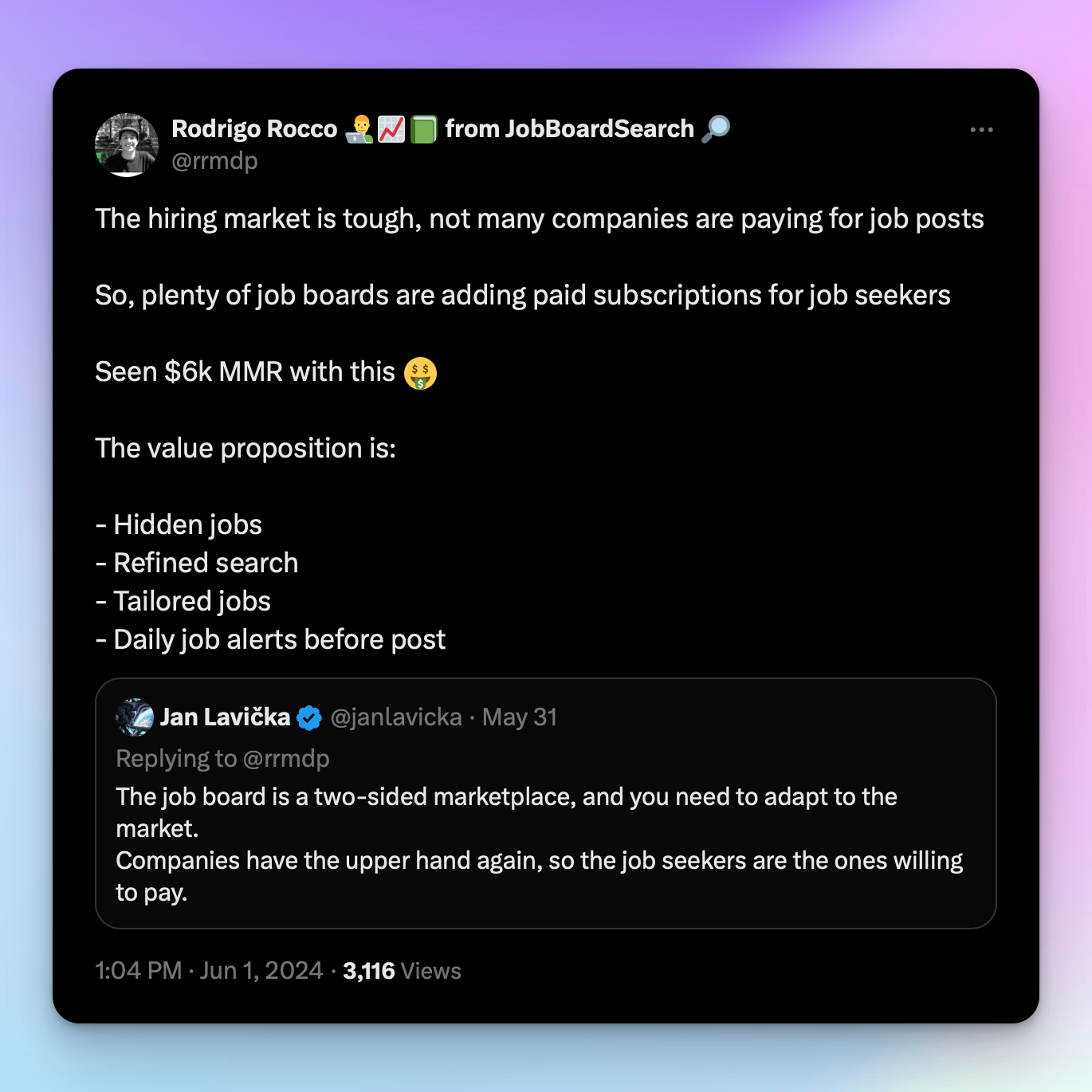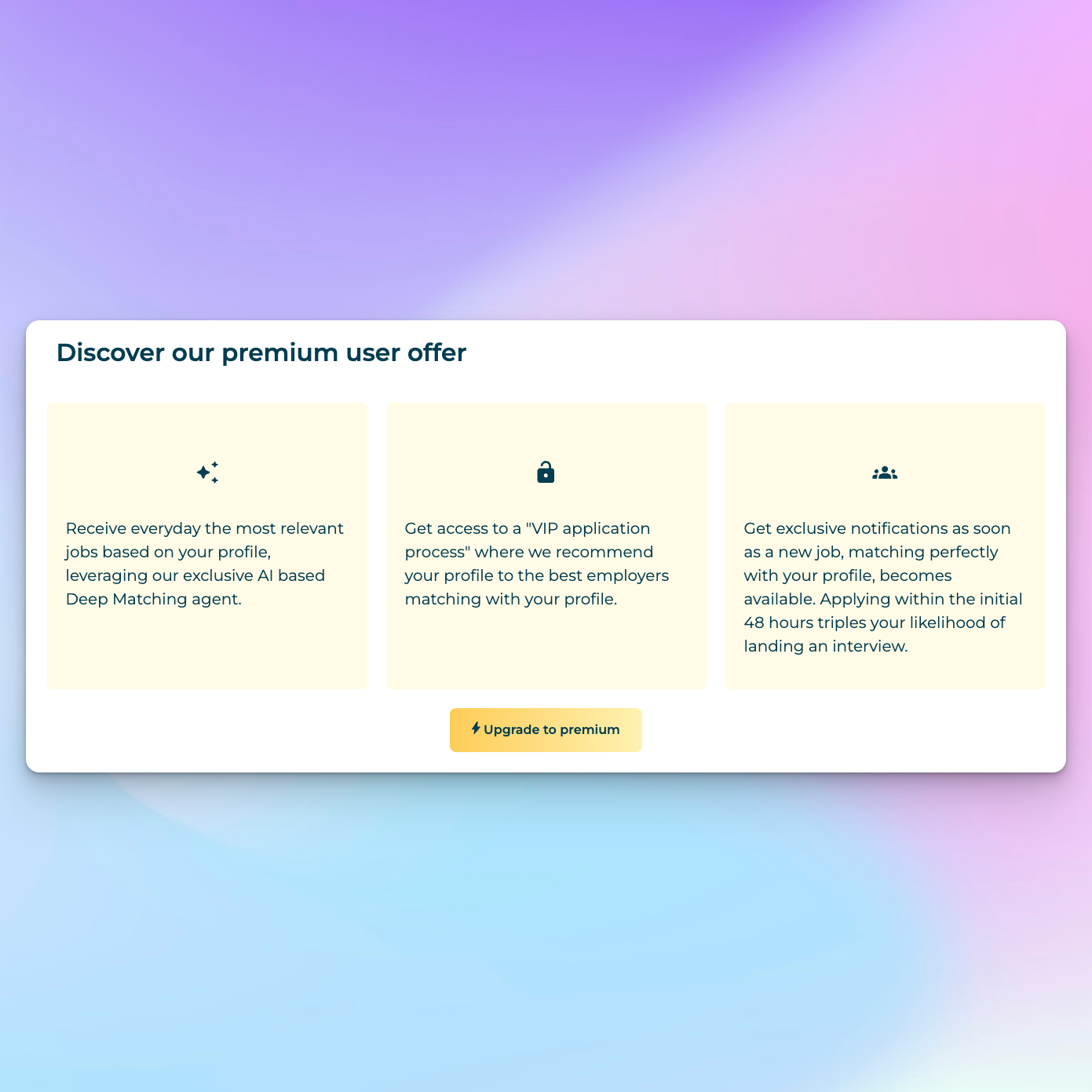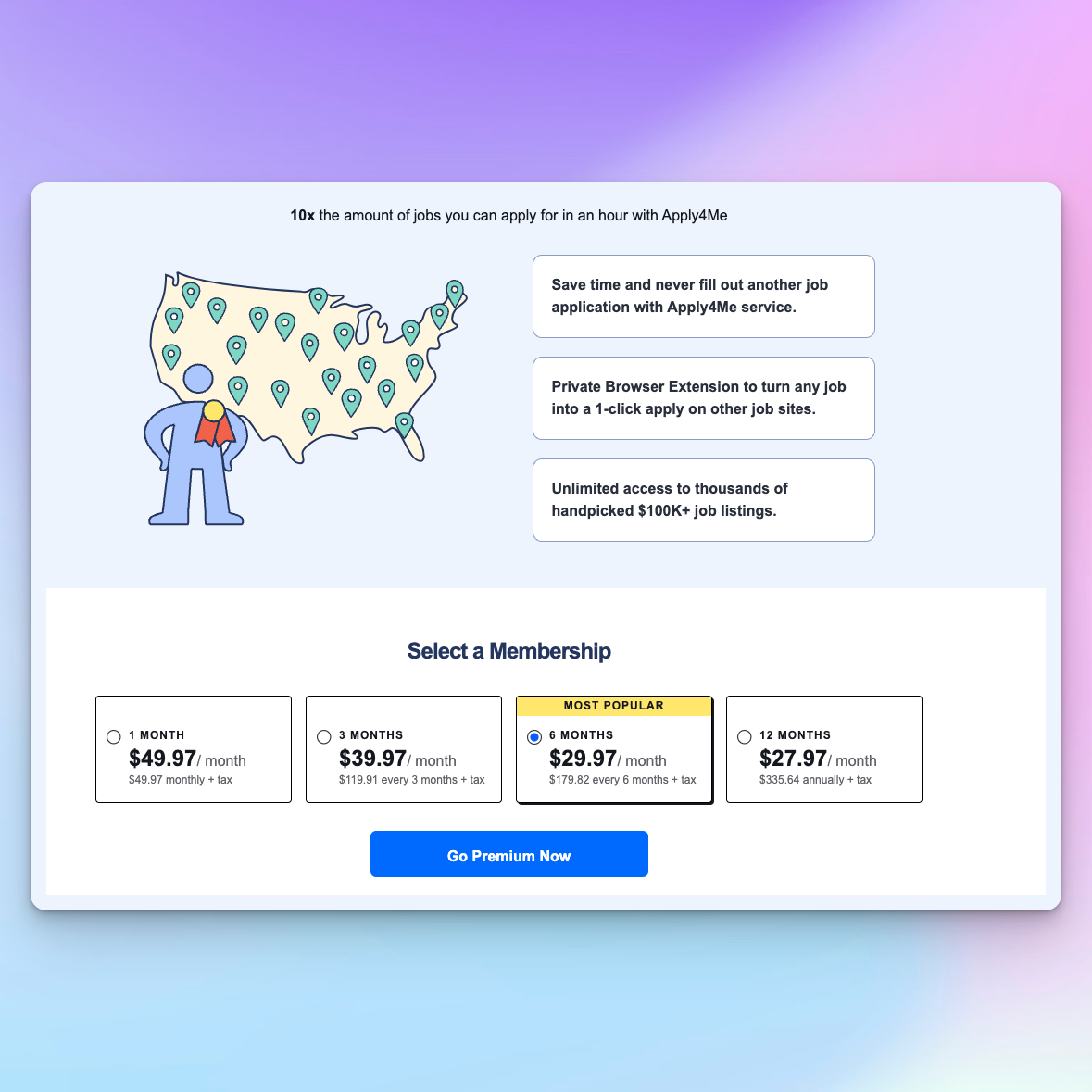Monetizing job seekers – are b2c paid job boards viable business models?
Paid job boards? Seriously?

This post is motivated by a discussion on Twitter initiated by @janlavicka and Rodrigo Rocco, the founder of JobBoardSearch.
Rodrigo’s startup, JobBoardSearch, is a list of job boards, and he is somehow an exclusive contact to the rapidly rising solopreneur job board operator scene. For some reason, people want to build job boards in 2024.

The main message is that now that the labor market is tight and B2B revenues are drying out (companies are not posting jobs), niche job board owners are pivoting to subscription-based products and starting to monetize job seekers. Rodrigo has mentioned two that he is aware of doing good MRR. I have also worked with a few people in the past who I know are doing well.
I found this an interesting discussion, and I have to say some things about this based on my experience working at a job board that did almost 80% of its revenue monetizing B2C.
For simplicity reasons, I will refer to job boards monetizing candidates as “paid job boards” from now on.
History of paid job boards
Historically, 99.99% of job boards monetize the b2b side, either selling job postings, clicks/applies or candidate database / CV. This is not 100% correct because most of these also have some form of B2C monetization, mostly around resume reviews.
Funny fact - my first job was at a paid job board. My experience in the online recruiting industry spans over 15 years, from early 2007, when I started working as a student in a German job board called Experteer in Munich.
Experteer was closely modeled after the OG of paid job boards, The Ladders (today known as just “Ladders”), which promised exclusive executive jobs with salaries over $100K. Now, The Ladders did not have the best reputation in the industry (not my statement; check this and this), but they have launched a range of new products, and from what I can see on Trust Pilot, the feedback has improved after they added the new features (apply4you for example, a low-tech apply automation tool).
So, these paid job boards have a value proposition around their offering, which mostly centers around providing additional value to job seekers that they will not find on free job boards.
There are many ways to say this in marketing terms, but the original value proposition of The Ladders was jobs above $100K with a salary benchmark. Experteer offered a similar value proposition, adjusted for the German labor market – access to the hidden job market and being contacted by headhunters.
The monetization is based on the job seeker, asking them to buy a subscription to access the complete services of the platform (= access all jobs and be able to apply to them).
Paid job boards have mighty user acquisition processes that are significantly more ROI-driven than traditional job boards, which aim primarily to acquire applicants. Paid job boards are optimized for subscriptions, so they use more display advertising and have very sophisticated performance marketing departments.
This is different than what some free job boards do, asking the job seeker first to subscribe before they can apply. There is still no payment involved here, although one can argue that you are paying with your email.
The new trend of paid job boards
The first time I saw new paid job boards was around 2022-2023, and I was always in the remote sector.
There is a high demand for remote jobs, so people are willing to pay a subscription fee to get access to remote jobs, especially when the marketing message is done correctly.
I am starting to see this in some niches like AI jobs and particular verticals, but the demand for employment is always significantly higher than the demand for employees.
Today's difference is that most new paid job boards are managed by small teams or even solopreneurs who need to start using sophisticated performance marketing processes and mostly SEO / word of mouth / organic growth.
This takes me to the ethical and value considerations of paid job boards.
Ethical and value considerations
Let me start by saying that I don’t see any ethical issue with charging job seekers as long as you provide some additional service worth the cost.
There are three ways to provide additional value as a job board that can be monetized:
- Your job board has jobs that people cannot find anywhere else
- You provide additional filters/metadata that job seekers cannot use anywhere else
- You offer additional services that supplement the job seeker experience
Let’s dive into each of these:
Unique job content
Arguably, this is the hardest part. Jobs are commoditized – most of them can be found on Google Jobs and Indeed anyway, so claim this: you have to be able to explain how the jobs you are serving are unique. One opportunity would be to scrape long-tail content from small companies you will not usually find on Indeed or Google Jobs.
If this is viable? Depends a lot on the country and the industry. This is hard and very costly in the US and the UK.
Unique job content can also be related to the “hidden” job market – mandates given to headhunters and recruiters that are not openly advertised online.
Additional filters or more metadata
Another use case is if you are aggregating and pre-filtering particular niche content or helping job seekers find jobs faster.
For example, remote jobs have very different requirements – we have 100% remote, flexible, country-specific remote jobs. If you can extract this information at scale and with high confidence, you will add additional value to the job seeker’s experience, making it a good use case for a subscription-based product.

Aggregating and pre-filtering some very niche jobs can also be valuable when existing job boards are not providing enough filters. For example, you want to service job seekers who wish to work exclusively in companies with zero carbon footprints. It is an extreme example, but I imagine Gen Z applicants willing to pay for this. Though this functionality is costly, you must spend much time pre-vetting every company.
Additional features for job seekers
Another possibility to provide value for job seekers and charge for it is to offer some services that traditional job boards don’t offer but make the life of a job seeker easier. This could be anything from providing apply-automation tools that make the application process easier (The Ladders has one called Apply4you, where a team of assistants will send applications for you to jobs).

I have also seen pushing the latest jobs to subscribers before they get published on the job board and become available to all visitors. The value proposition here is that only your paid subscribers can apply first to jobs, which, for remote jobs, is a vast topic.
Should you charge job seekers as a job board owner?
I want to be straight here - there are very few use cases where you, as a job board, can make B2C subscriptions work.
There are more than enough paid remote job boards, so entering this niche is risky.
So, if you want to charge job seekers and make it a consistent, growing business that will be around once the labor markets recover, you have to consider what job seekers in your niche are willing to pay for.
For me, the valuable use cases here are allowing additional filters (extracting more data out of jobs) or providing additional market/country-specific features. This is the true path to sustainability here – provide extra value that cannot be found on other job boards and charge for it.
One final note - considering a subscription-based job board, you should also think in advance about user acquisition costs. SEO is your best bet here since click prices on display and social media have been increasing, and making this model work is significantly more demanding than a few years ago.